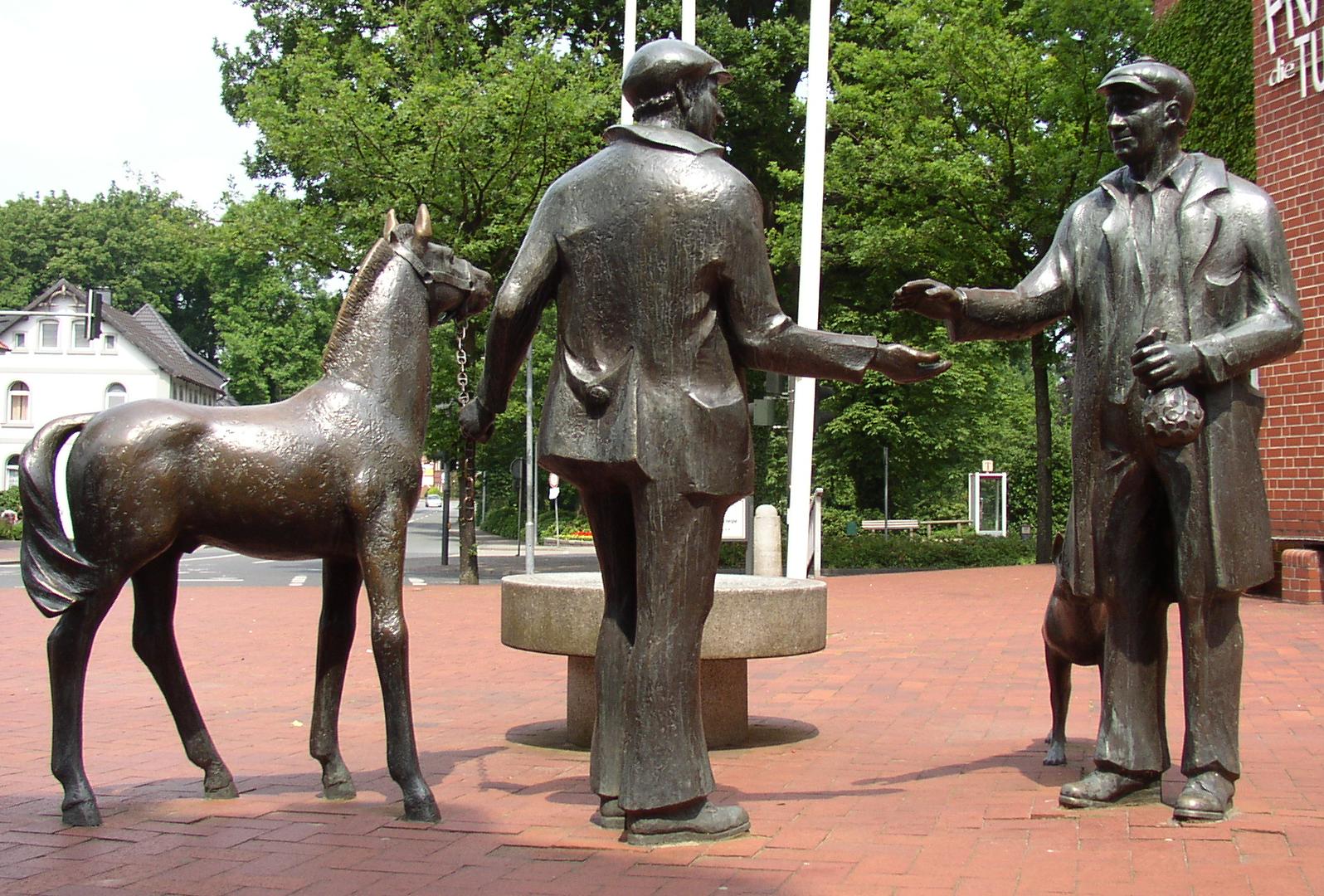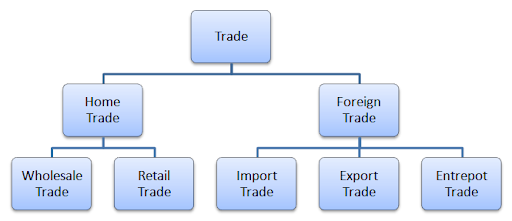Market Place. Thomas III of Saluces, ca. 1400-1415

Focus Question: What are the benefits of trade among individuals, regions and countries?
Topics on the Page
Why Do Countries Trade
Advantages and Disadvantages of Trade
Types of Trade
 Cross-Link: Trade Along the Silk Routes
Cross-Link: Trade Along the Silk Routes
What is Trade? from Capitalism.org

Why Do Countries Trade?
- Simply put, countries trade with each other when they don't have the resources or capacity to satisfy the needs of their own country.
- Countries are usually able to trade a surplus of scarce resources that they don't need, for other scarce resources from other countries that they need.
- Other motivations for trade include: cheaper goods/services, higher quality goods/services, or the lack of a necessary natural resource (such as oil).
Why Do Countries Trade?
Read and interact with an overview of global trade from the World Trade Organization
Advantages and Disadvantages of Trade
Advantages:
- Trade encourages countries to specialize in producing goods and services that they can produce most efficiently at the lowest opportunity cost.
- Trade allows countries to compete for consumers, making prices more competitive (lower) and the purchasing power of consumers greater.
- Trade can help break up domestic monopolies since they will face competition from abroad.
- Increased trade is linked to increased employment.
- Trade usually leads to more innovation and quality of goods; competition leads to better technology.
Disadvantages:
- Trade can lead to "over-specialization". This means that workers could risk losing their jobs if they only know how to do a certain job and can't adapt to new jobs, especially if their job becomes obsolete.
- Domestic workers might not have a chance due to cheaper imports of the same products they produce.
- Trade can lead to unfair working conditions and pay in developing countries; they work for longer hours and terrible pay because it is the only job they can get (and their bosses want to sell the goods for dirt-cheap in other countries).
- Trade can lead to depletion of natural resources.
- Trade can lead to jobs being outsourced to other countries for cheap.

Imports, Exports, and Exchange Rate Crash Course
Specialization and Trade Crash Course
Nike Sweatshops: Behind the Swoosh
Different Types of Trade
Horse Traders; image by Doris Antony

- Domestic trade can be broken up into two categories: wholesale trade and retail trade.
- Wholesale trade is concerned with buying goods from manufacturers or dealers in large quantities (usually at a discounted price). People who buy wholesale goods usually intend on selling the goods in smaller quantities for a profit (retail trade).
- Retail trade is concerned with the sale of goods in smaller quantities to consumers.
- Foreign/International trade can be broken up into three categories: import trade, export trade, and entrepôt trade (re-exportation).
- Import trade is concerned with the purchase and acquirement of a foreign good or service.
- Export trade is concerned with the selling of a domestic good or service to a foreign country.
- Entrepôt trade is concerned with importing a good and then exporting it to another country. For example, if the United States imported oil from Saudi Arabia and then exported that oil to Japan
Learn about the West African and Saharan trade routes from the Smithsonian National Museum of African Art
 Cross-link to Ancient African Empires of Ghana, Mali, and Songhai
Cross-link to Ancient African Empires of Ghana, Mali, and Songhai
 |
| Image by KaylanCityLife |
Read about the US Trade Policy since 1934
2:22 minute video: Why does international trade matter in the US
- "Nancy McLernon, President and CEO of the Organization of International Investment (OFII), discusses why international trade matters in the US with PwC's Scott McCandless of Tax Policy Services"
Possibly one of the greatest indicators of the importance and benefits of trade worldwide is the detriment and destruction of "trade wars"
- a trade war is when countries try to attack each other's trade (and therefore their economies) with taxes and quotas
- Listen to NPR's A History Of Trade Wars
- The Boston Tea Party as part of a trade war?
- What makes a trade embargo so effective is the IMPORTANCE of trade
Video form the Economist on trade war between America and China
Click here for an article on US trade policy over the past century from Business Insider
 Learn about the all-women's tea party - The Edenton Tea Party 1774 North Carolina
Learn about the all-women's tea party - The Edenton Tea Party 1774 North Carolina
.png) The U.S. is the largest importer and second largest exporter in the world today. What is its biggest import and what is it largest export?
The U.S. is the largest importer and second largest exporter in the world today. What is its biggest import and what is it largest export?
IMPORT: Cars
EXPORT: Refined petroleum
Comments (0)
You don't have permission to comment on this page.